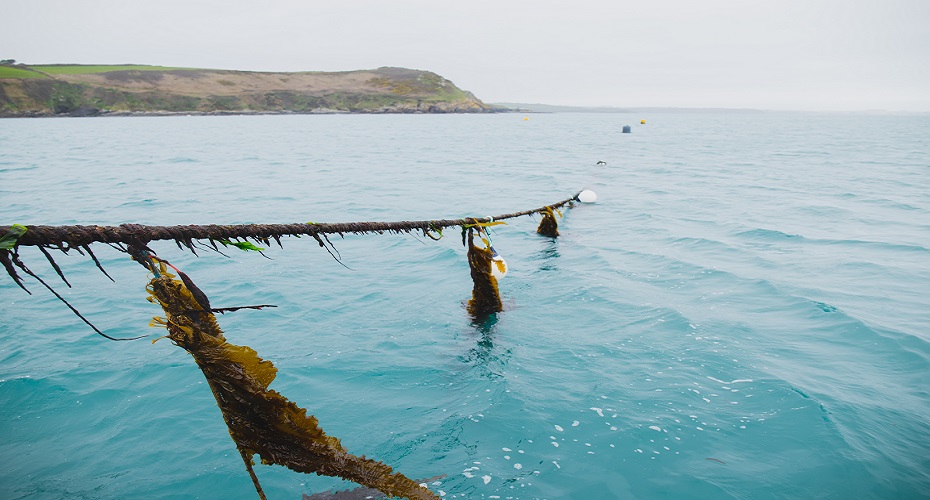Strategy, Policy, Regulation
Strategy, Policy and Regulation
SAF was launched to bring together experts from academia, government and industry to support in the sustainable growth of the aquaculture industry. The documents below are examples of where SAF scientists have recently coordinated efforts to support stakeholders in influencing Marine Strategy, Policy and Regulation.
Positive tipping points for sustainable growth of bivalve shellfish aquaculture in England and Wales
Project Team: Ross Brown, Lisa Bickley Charles Tyler (Sustainable Aquaculture Futures), Tom Powell (University of Exeter Global Systems Institute), Tim Huntingdon (Poseidon Aquatic Resource Management)
Ambitious growth aspirations for farmed shellfish in England and Wales are unlikely to be achieved unless coordinated interventions can be made to unlock a series of major constraints including: licencing of mariculture sites and cultured species, water quality management and site classification; accessing and expanding markets for shellfish products; valuation of ecosystem services beyond food production.
This report summarises the findings of a workshop in which industry and policy stakeholders were engaged to identify key interventions and enabling conditions for triggering positive, self-reinforcing and cascading change from the current status quo – according to the Positive Tipping Points (PTP) framework.
Huntington T, Brown AR, Bickley LK, Powell T, Tyler CR (2023). Positive tipping points for the sustainable growth of bivalve shellfish aquaculture in England and Wales. Case Studies Workshop Report. 54pp. To be added shortly
This Policy Brief summarises the findings of the above report on ‘Positive Tipping Points for sustainable growth of bivalve shellfish aquaculture in England and Wales’. Key constraints and opportunities for interventions to leverage sustainable growth of the sector were identified with the aid of the Positive Tipping Points (PTP) framework.
Brown AR, Huntington T, Bickley LK, Powell T, Tyler CR (2023). Positive Tipping Points forsustainable growth of bivalve shellfish mariculture in England and Wales. Policy Brief. 7pp. Download policy brief here
This work was funded by the University of Exeter’s Knowledge Exchange Culture Programme, supported by the Higher Education Funding Council for England.
Supporting Mariculture Development: Evidence for informed regulation
Project PI: Ian Ashton
Project Lead: Carly Daniels
Contributors: Josh Martin, Ross Brown, Charles Tyler, Mindfully Wired
This project bought together experts from the fields of marine planning, regulation, management, science, and industry to explore opportunities to streamline regulatory processes and clarify evidence requirements for emerging marine aquaculture (mariculture) developments focused on the South-west. An interactive workshop included exercises to help identify key actions needed to support sustainable development of novel and emerging mariculture practices (e.g. seaweed farming) building on the licensing of traditional practices (e.g. shellfish farming). Case studies included marine licensing, aquaculture strategy, mariculture planning in association with fishing, and mariculture developments around MPAs. The workshop generated broad agreement between the attending regulating bodies, scientists and industry for the sustainable development of mariculture industry in the South West. Information from this workshop was used to synthesise a Policy brief and Policy statement which have since fed into the English Aquaculture Strategy.
The work was funded by Research England’s Strategic Priorities Fund.
Daniels, C., Ashton, I., Brown, R., Martin, J., Tyler, C., Ryan, K., Mynott, S., Kaye, R. (Eds) (2020) Supporting Mariculture Development: Evidence for Informed Regulation. Policy Brief. 21pp. Download policy brief here
Daniels, C., Ashton, I., Brown, R., Martin, J., Tyler, C., Ryan, K., Mynott, S., Kaye, R. (Eds) (2020) Supporting Mariculture Development: Evidence for Informed Regulation. Policy Statement. 5pp. Download policy statement here
Developing general rules to facilitate evidence-based policy for mariculture development in and around Marine Protected Areas (MPAs) in England
Project PI: Charles Tyler
Project Lead: Ross Brown
Contributors: Carly Daniels, Keith Jeffery (CEFAS), Pia Bateman (Southern IFCA)
Evidence-based policy is required to facilitate sustainable growth in UK aquaculture. This requires optimising species selection and aquaculture technologies and seeks to complement, rather than conflict with, other marine uses, including marine conservation. We conducted a regional case study for SW England, supported by the Centre for Environment Fisheries and Aquaculture Science (CEFAS), Inshore Fisheries and Conservation Authorities (IFCAs) and Natural England. The report provides a synthesis of evidence and recent developments in marine policy making and decision support tools for enabling the sustainable development of mariculture sites, species and technologies in and around marine protected areas (MPAs).
The work was funded by Research England’s Strategic Priorities Fund.
Brown AR, Daniels C, Jeffery K, Tyler CR (2020). Potential for marine aquaculture development in and around Marine Protected Areas (MPAs) in England. Policy Brief. 13pp. Download policy brief here
Brown, AR., Daniels, C., Jeffery, K., Bateman, P., Tyler, CR (2020). Developing general rules to facilitate evidence-based policy for mariculture development in and around Marine Protected Areas (MPAs) in England. Report to Research England (Strategic Priorities Fund). 30pp. Download policy report here


